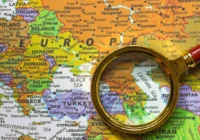Since the end of the Cold War, NATO has expanded from 16 to 32 members, shifting the alliance’s identity and strategic focus eastward. The expansion has brought countries with a history of Soviet domination, such as Poland, into the alliance. These countries bring their grievances and fears about Russia, affecting NATO’s future decisions and potentially pushing the alliance toward a more aggressive stance.
Differing views on Russia within NATO
Not all NATO members share the same perception of Russia. While some Eastern European countries, like Poland, perceive Russia as a direct threat and advocate for a stronger military presence, others, like Hungary, adopt a more balanced approach, prioritizing diplomacy and national interests. This divergence in viewpoints highlights the complexities within the alliance and the challenges of reaching a unified stance on Russia.
The varying perspectives on Russia also reflect the influence of historical experiences. Countries like Poland, which suffered under Soviet rule, harbor deep-rooted fears and advocate for a more assertive approach toward Russia. In contrast, countries with less traumatic histories, or those prioritizing economic ties, may lean more towards diplomacy and cooperation.
The debate over NATO’s role and the perception of Russia extends beyond Eastern Europe. Western European powers, including Germany, France and the UK, have unique worldviews influencing their foreign policies towards Russia. Germany has frequently supported Eastern European nations and sided with the US because of historical guilt. At the same time, France has traditionally sought a more balanced approach, maintaining dialogue with Russia while supporting Ukraine. On the other hand, the UK has historically been more aligned with the US and has taken a stronger anti-Russia stance.
Recent developments, such as France’s consideration of sending troops to Ukraine and the UK’s training of Ukrainian soldiers, indicate a potential shift in the alliance’s dynamics. France’s position suggests a growing alignment with Eastern European nations, calling for a more assertive approach in light of its losses in Africa and the perceived threat posed by Russian mercenaries. The UK’s actions reflect its historical grievances with Russia and its close alliance with the US.
Economic Woes Hinder Defense Spending in Europe
The economic and political challenges European countries face further complicate NATO’s decision-making. Many European nations grapple with economic downturns, rising inflation and unbalanced budgets. The need to prioritize economic growth and social services may limit their willingness to increase defense spending or commit additional resources to military interventions.
Its members’ differing priorities and security concerns exemplify NATO’s complexities. Turkey, a NATO member, has played a complex role in the Ukraine conflict, balancing its support for Ukraine with economic deals with Russia. People have raised concerns about Turkey’s reliability as an ally and its potential influence on NATO’s decisions.
NATO can solidify its future by overcoming internal divisions and forging a common approach. Navigating varying perceptions of Russia, balancing member priorities and adapting to a shifting geopolitical landscape are crucial tasks. As the world becomes increasingly multipolar, NATO’s role and effectiveness will face new challenges. The alliance must demonstrate agility in adapting to these challenges while ensuring its core principles of collective defense and security cooperation remain robust.
[Peter Choi edited this podcast and wrote the first draft of this piece.]
The views expressed in this article/podcast are the author’s own and do not necessarily reflect Fair Observer’s editorial policy.














Comment